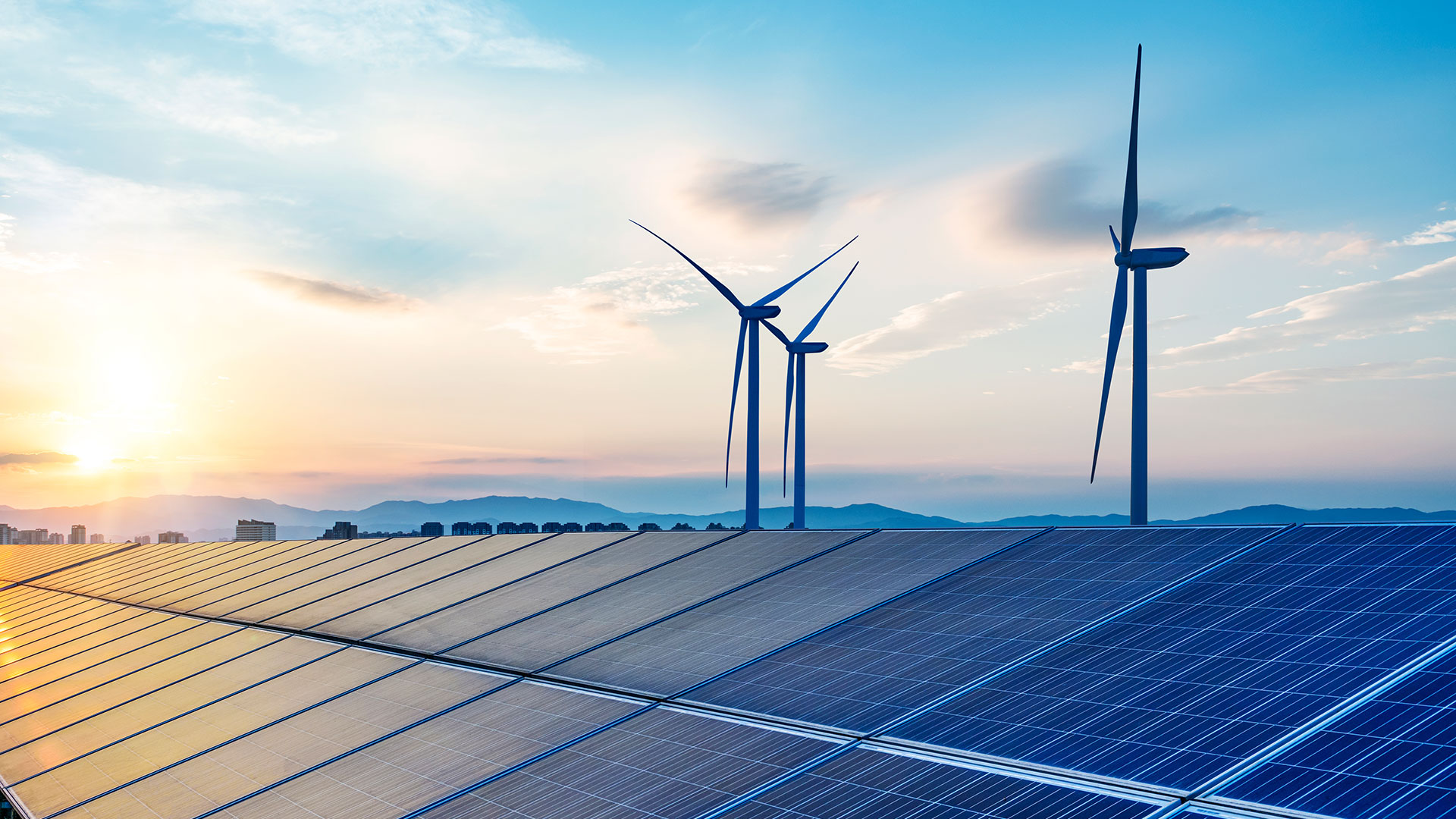What role does renewable energy play in Germany’s power mix?
Over the last 25 years, the German electricity mix has undergone significant diversification. Today, renewable energy – foremost wind and photovoltaic – has become the backbone of the German Energiewende and is the cheapest form of electricity generation.

Renewable energy as a key pillar of Germany’s power system
Renewable energy has undergone considerable development in Germany, primarily thanks to a support scheme introduced by the German Renewable Energy Sources Act (EEG). Its share has multiplied six times in twenty years, reaching 40% of power production in 2021 (against only 6.5% in 2000). Looking at electricity consumption, i.e., production minus net exports, the share of renewables is slightly higher (41%) since the country is a net exporter. Recently, the German government raised the renewable energy target in the power sector to a share of 80% in 2030. Lignite and hard coal contributed 28% to Germany’s power mix in 2021, but their shares had significantly dropped compared to 2000s levels (48%). The share of nuclear has also dropped significantly (to 12% in 2021, against 27% in 2000).
The escalation of Russia’s ongoing war against Ukraine marked a turning point for the use of natural gas in Germany in 2022. Historically, Germany has relied on Russia as its main gas supplier and considered natural gas as a ‘bridge fuel’ towards climate neutrality, increasing the use of natural gas to cover 15% of power demand and 27% of total energy consumption in 2021 against only respectively 9% and 21% in 2000. In response to the Russian war against Ukraine, Germany is reducing its gas demand in buildings, industry, and the power sector. Additional sanctions on part of the European Union and its partners, or equivalent actions on the Russian side could lead to a complete disruption of supply. Against this background, scaling up renewable energy and reducing fossil fuel demand has become even more important not only for climate action but also to ensure energy security (refer to Question 4 for more).
The current developments of the German power mix are updated live in the Agorameter.
Wind and solar power are the cheapest sources of electricity generation in Germany
Since the 1990s, the German Renewable Energy Sources Act (EEG) has ensured relatively stable investment conditions for renewable energy producers, whilst stimulating innovation, fostering cost decreases and incentivizing market integration. Thanks to this supportive investment framework, as well as the globalization of production, costs decreased further and made renewable energy technologies accessible and affordable for a greater number of countries and people. Today, wind energy and solar photovoltaics are the cheapest sources of electricity generation in Germany and most parts of the world.
Today, the generation costs for onshore wind and ground-mounted solar power are about 50 €/MWh in Germany, which is lower than the generation costs of any other technology. The same is true in many countries around the world. Countries with better wind and solar conditions such as Morocco, Chile, and the United Arab Emirates are developing projects at even lower costs. In addition, renewables increase energy independence by reducing structural dependence on imported fossil fuels and act as a hedging strategy against fossil fuel price increases and volatility. Finally, high renewable feed-ins reduce prices on the wholesale electricity market (through a mechanism known as the merit-order effect).
Last revision on .
